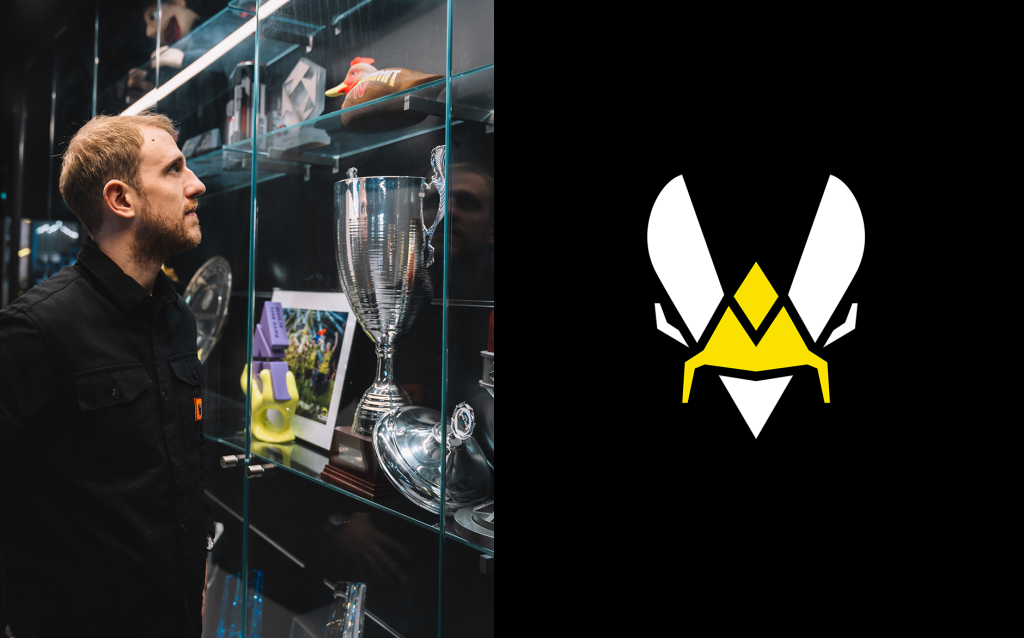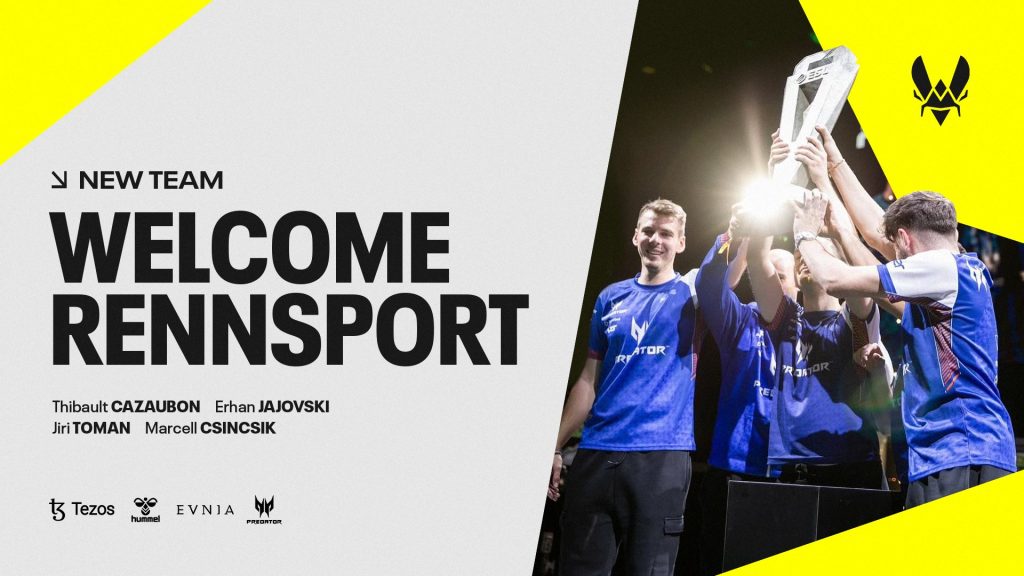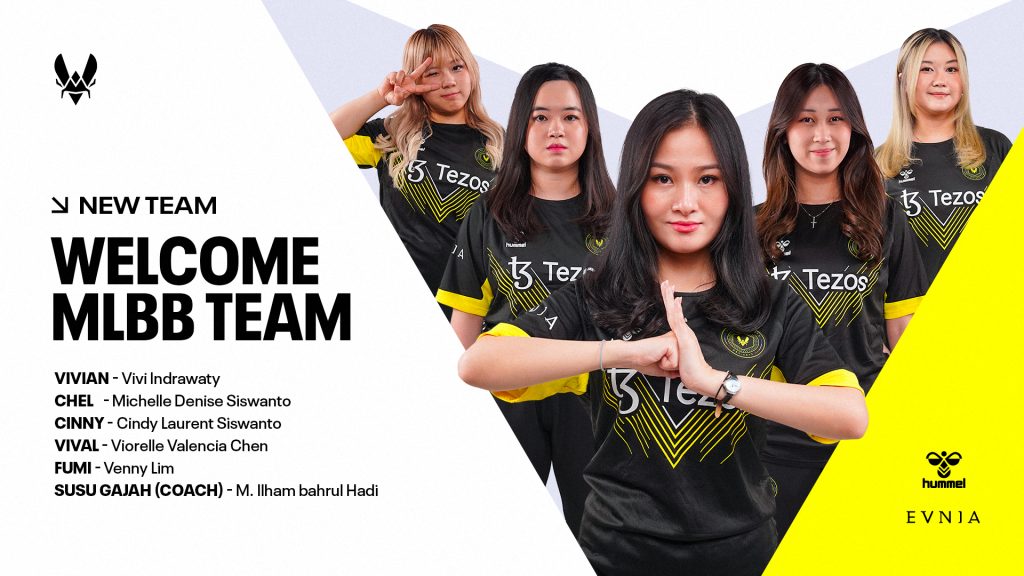
Team Vitality is on a signing spree to get the most out of the Esports World Cup, a global competition in Saudi Arabia that, during the course of more than a month this summer, will host tournaments in 19 titles with a comprehensive prize pool of over $60m (~£47m).
Not only will there be regular esports tournaments, there will also be an overall ‘Club Championship’, which rewards the most consistent organisations across multiple titles.
To even be considered for the top 16 (among which the $20m prize pool will be shared), clubs need to get in the top 8 of at least two titles. To win the club tournament, organisations are also required to win at least one title, that’s why competing in multiple tournaments is key. Rankings will be based on points that individual athletes of each club will earn throughout the various competitions.
“The World Cup, it’s a big opportunity,” Nicolas Maurer, CEO & Co-founder of Team Vitality told Esports Insider. “This idea that all the clubs will meet this summer to lift something that will quickly become one of the biggest trophies in esports is really enticing”. It is also a matter of scale: “It allows us to take the risk that we were unable to take in the last three years,” Maurer added.
Clubs can only earn points through players who were signed and announced before the deadline of May 31st, 2024. That’s why, in the past six months, Team Vitality has gone on a signing spree adding a Starcraft 2 roster from Korea (ONSYDE), a RENNSPORT simracing team founded by former F1 star Romain Grosjean (R8G Esports), a top tier female Mobile Legends: Bang Bang roster from Indonesia (Bigetron Era), a Korean Tekken 8 player (Jeon ‘Jeondding’ Sanghyeon) and a Canadian Street Fighter 6 rising star (Sayff) to its operations.
In recent years esports organisations have been doing the exact opposite: focusing on a very limited pool of titles to guarantee themselves prestige and sustainability. Team Vitality, for example, has prioritised Counter-Strike and Rocket League, a strategy that paid off substantially considering the accolades the team has gathered. However, Team Vitality’s stance is seemingly changing.
“The esports winter, or whatever it’s called, [is] not changing at all the way we perceive esports’ steady growth in the long run. There are cycles, like the one we can see right now, but that doesn’t change the long-term perspective for us,” Maurer added.
He continued: “We now have a huge ambition to expand Vitality, reach a wider audience and cater to other markets. Adding new teams, however, costs money, but also it’s a strain on the company in terms of resources and ability to focus on what matters and the performance of the key team.”

Team Vitality’s expectations are twofold: the first one is that the Esports World Cup is here to stay. The event, however, is still riddled with controversy due to the Saudi government’s involvement. The nation, has been criticised for human rights violations, its crackdown on dissidents and its views on women’s and LGBTQ+ rights.
“There’s a huge investment and a huge commitment behind it and we expect it to go on for a longer period than two years. We expect the competition to be a staple of the esports industry,” Maurer said.
The second factor that Team Vitality considered is that the new teams have to make sense for the organisation from a content, commercial or business perspective. “Obviously our expansion process has been accelerated by this new opportunity, but ultimately the new teams must be interesting for Vitality as an organisation.
“They must be able to attract new fans, to have more interesting content developed and generate new revenues outside of the prize money, like new sponsorships. So the expectation is that, again, we’re not signing teams just for the sake of it, we’re signing teams after a careful analysis because we cannot go crazy again, fall into the trap of overspending and not be sustainable for the future: it has been quite a challenge,” Maurer concluded.
The man in charge of designing and implementing Team Vitality’s strategy for the Esports World Cup is Danny Engels, the new Corporate Director of Global Operations for the French organisation. He spent months analysing the global scenes of the World Cup titles in which Team Vitality still doesn’t have a team. “I wasn’t looking to sign new teams just for the sake of having 20 chances at the World Cup.”
Engels continued: “I wanted to follow the DNA of Vitality: we want champions and I think we stand true to that when you look at the track record of our players in the last six months.
“Maru (Cho Seong–ju) is one of the best in the world [for] Starcraft 2. Jeondding finished second at the last TEKKEN World Tour and is an interesting and super humble person. You also have the RENNSPORT team (who dominated the title’s esports scene since its inception in 2023) and the aces of the Mobile Legends: Bang Bang squad who are some of the most formidable players I’ve seen. I have high hopes that they can all bring prestige and titles to Vitality.”

Engels considers the Mobile Legends: Bang Bang team the crown jewel of his efforts because the former Bigetron Era squad tick all the boxes: high chances of victory in the Esports World Cup, a big following back home and a high chance of success on the international stage beyond the EWC.
However, not all scenes have had such an obvious entry point as MLBB and Starcraft. “The Fighting Game scene, for example, is really top-heavy,” said Engels.
“Most athletes are not used to competing for a team and they view organisations as more akin to sponsors. What I’ve done with Vitality is change the approach and look into the last three competitive years of the games featured in the World Cup. I focused on the volatility of the results to try to find out which are the titles where, if I pick up the top player, they’re most likely to also succeed in the future. Here is where TEKKEN stood out.”
The approach changed once more for Street Fighter, where the organisation decided to bet on a Canadian player. “He’s quite an interesting character: when I reached out to him he told me ‘I’m not the right guy for you’. And I went ‘okay, let’s talk’. He’s actually a PhD in Biochemistry and works for the Canadian government. And he pretty much does Street Fighter more as a hobby but he finished top eight at the Capcom Cup (the SF world championships) and is the best non-Asian player in Street Fighter.”
This strategy is not only aimed at performing well at the Esports World Cup and expanding eastward, it’s Team Vitality’s bid to try and be a more recognisable brand in the Americas. It’s not a simple task because only victories get the organisation the spotlight it needs, especially since it hasn’t previously bet on big names or super popular titles in the Americas.
“It’s actually shocking how many people in the United States don’t really know much about Team Vitality,” said Engels. “They may know a little bit about our Counter-Strike and Rocket League victories, but if you then look into the League of Legends bubble and Call of Duty bubble, no one really knows too much about us. I think that’s a shame and that’s something that I definitely want to change for the future.”
With new players, new support staff and new and very ambitious objectives, Team Vitality now looks at the Esports World Cup as a catalyst for its expansion. Only time and victories (either of the whole thing or in key tournaments) will tell if all the contingencies that have been put in place will be enough if things do not go as planned.
